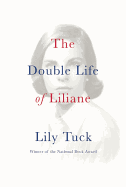
Winner of the National Book Award for The News from Paraguay, Lily Tuck exhibits her trademark brevity and clean prose in her sixth novel, The Double Life of Liliane. A former student of the notoriously exacting editor Gordon Lish, she embraces the succinct over the embellished, commenting in a New York Times interview: "I don't write a whole lot.... For the most part, I avoid adjectives and I definitely avoid adverbs.... I hope my readers will read my work with imagination." The Double Life of Liliane does indeed eschew extraneous modifiers, but it also includes scattered snapshot illustrations and detailed historical and genealogical digressions as it portrays the rich but disorienting young life of Liliane, the only child of her gregarious, multilingual Italian film producer father, Rudy, and her beautiful, artistic mother, Irène, who lives by her belief that "it is always easier to say yes." Readers who bring plenty of imagination to this metafictional, autobiographical narrative will be rewarded with the keen exploration of a young girl's mind, a complex family legacy and a world churning through war and migration.
Liliane's father, a German Jew, and half-Jewish mother leave for Paris in 1933, when Hitler's ambitious race cleansing program began to bloom. In Paris, "they lived more or less--often less--happily," until Germany invades Poland in 1939, and France declares war, detaining all male German immigrants in prison camps. Seven-month-old Liliane is raised speaking French with Irène in Paris while Rudy is first held in the camps and then inducted into the French Foreign Legion to earn his release. When the war comes to Paris, Irène, now divorced, and Liliane escape to Lima, Peru, where Rudy has family, and then to New York City's Upper East Side, where Irène remarries the kind-hearted, heavy-drinking banker Gaby.
Determined to become fluent in English along with her French and rudimentary Spanish, Liliane retreats into language, books, horseback riding and fantasies of romantic lovers. She visits her father annually in Italy, reluctantly attends a New Hampshire camp ("Liliane canoes... plays tennis, takes archery... weaves potholders, roasts marshmallows.... She hates Camp Bueno"), visits relatives to learn about the family legacy of professors, writers and iconoclasts (some of whose roots go back to Mary Queen of Scots and Moses Mendelssohn), discovers family ties to Josephine Baker, Jean-Paul Sartre and Simone de Beauvoir, studies literature at Radcliffe and, as the novel closes, follows a boyfriend to Bangkok. Hers is not only a "double life" of French and English fluency, but also one of balancing intellectual discipline and sensual curiosity, privilege and persecution, and the contrasting social circles of her divorced parents.
If the fictional Liliane is a stand-in for the very real writer Lily, The Double Life of Liliane is Tuck's ambitious attempt to exemplify Liliane's professor Paul de Man's definition of autobiography: "an act of self-restoration in which the author recovers the fragments of his or her life into a coherent narrative." In this, Tuck has achieved remarkable success. --Bruce Jacobs, founding partner, Watermark Books & Cafe, Wichita, Kan.
Shelf Talker: The Double Life of Liliane is a triumph of autobiographical metafiction, with photos, genealogical digressions and historical allusions as background to a young woman's complex path toward maturity.

